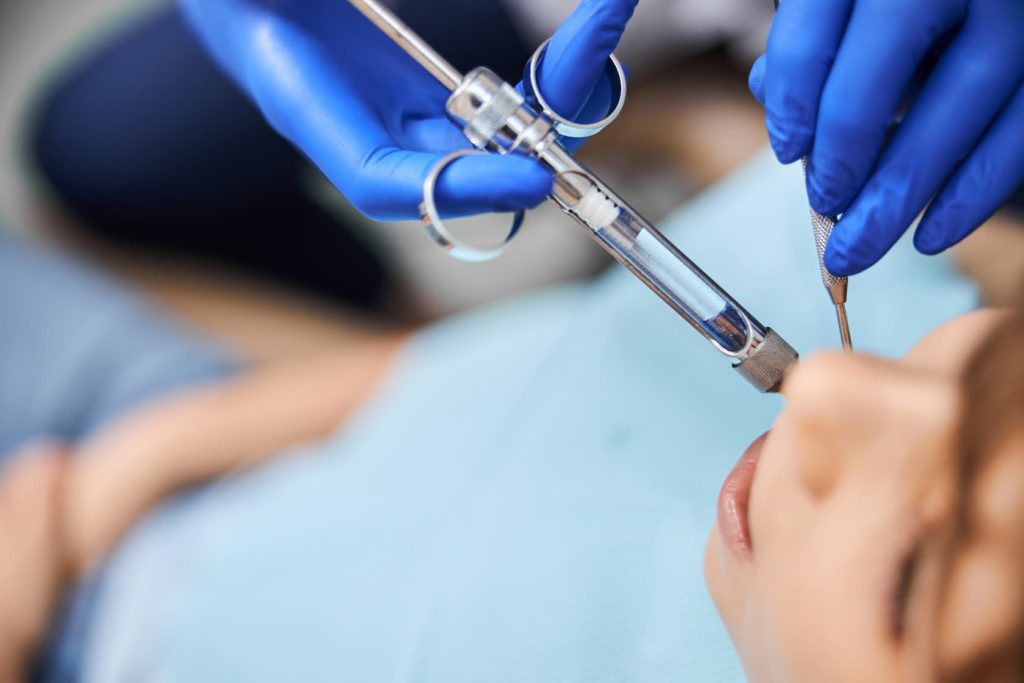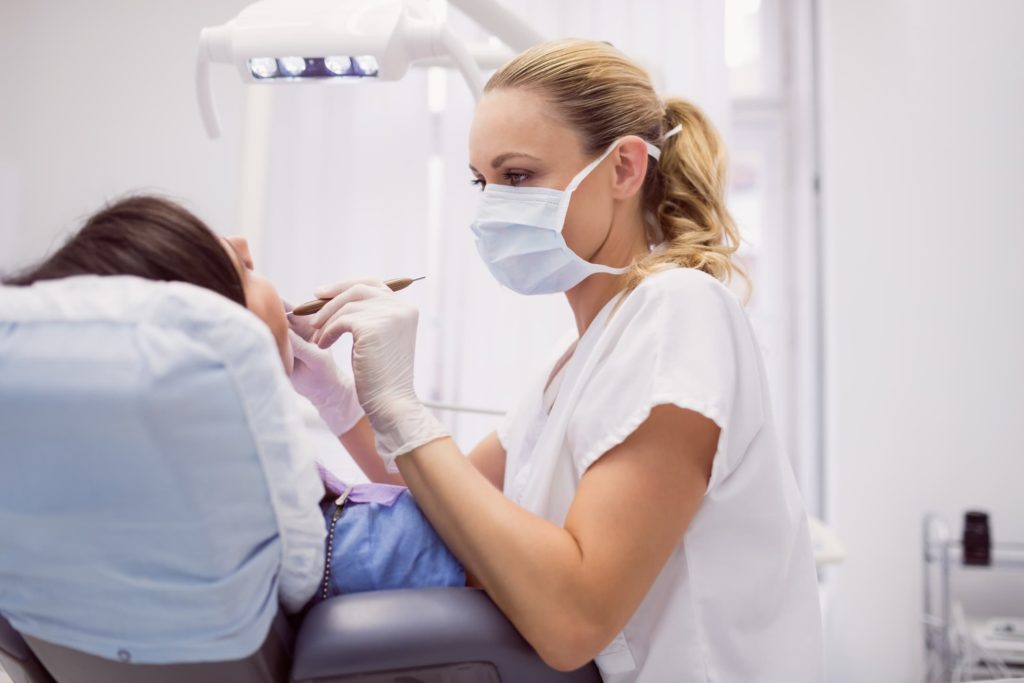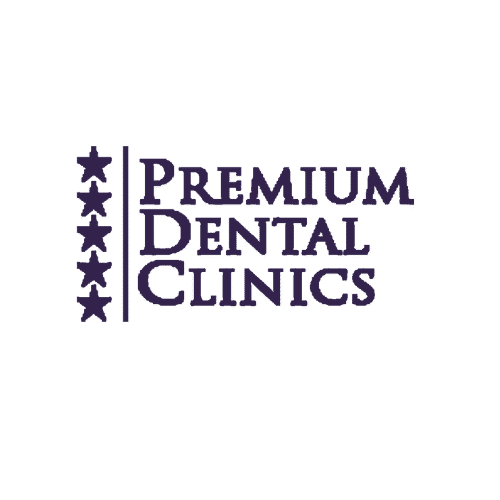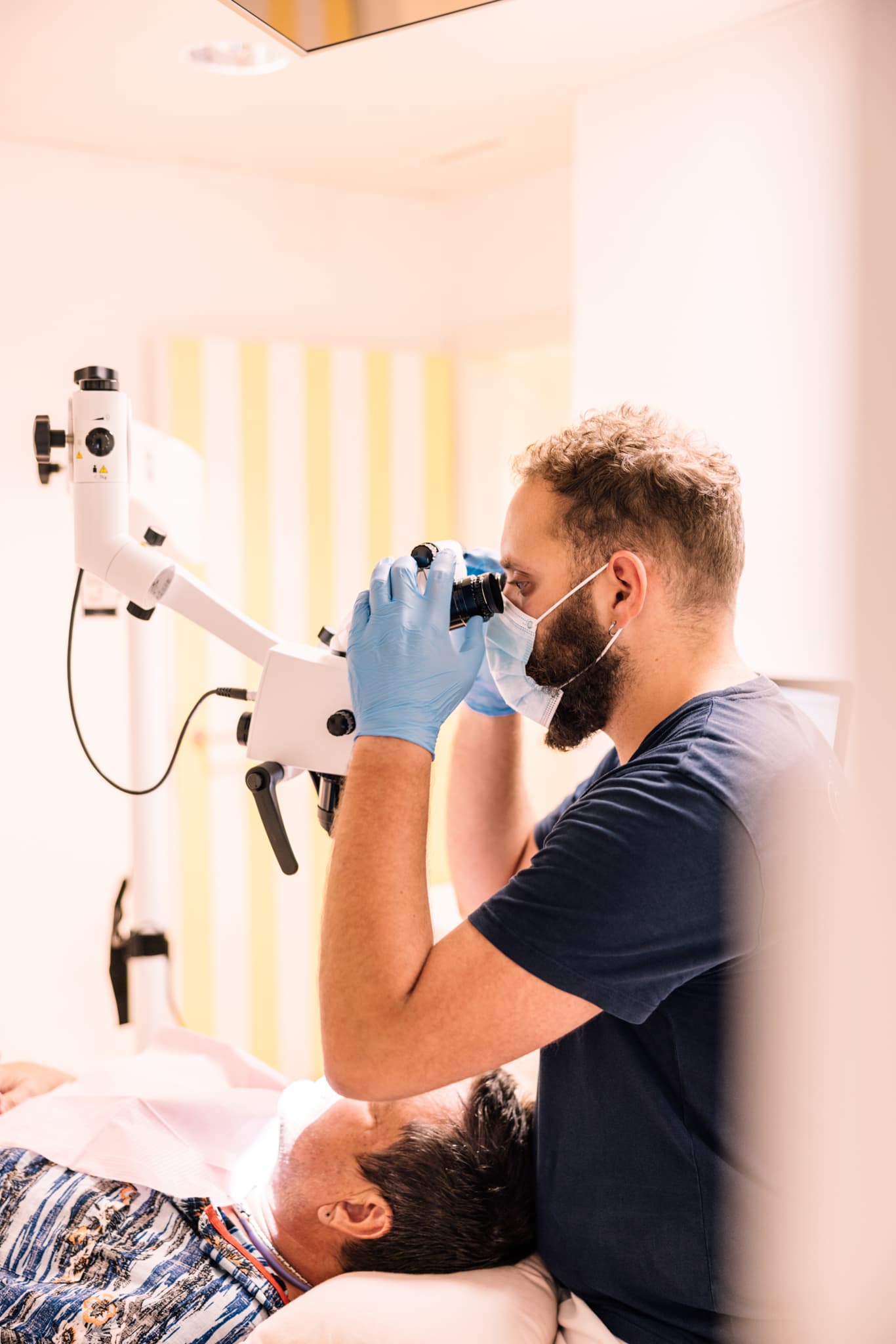Local Dental Anaesthesia
Precision, efficiency, peace of mind
Dental medicine has advanced significantly. Today, most dental treatments are completely pain-free for patients. Local anaesthesia offers real comfort and greater peace of mind. Thanks to this technique, stress and anxiety before and during your dental visit are a thing of the past!
Local dental anaesthesia at the CHD
At the CHD, we do everything we can to make your experience completely pain-free and as pleasant as possible. That’s why local anaesthesia is systematically included in all our treatments.
Discover this treatment in video


Pricing
| Upon estimate (generally included in the cost of the treatment) |
You have the possibility to pay by invoices and stagger your payments.
Fair & transparent prices
We strive to maintain unbeatable value for money: reasonable prices, which have not changed since 2016, for quality of care that has earned us numerous awards:




Advice
The effects of local anaesthesia wear off naturally, usually within a few hours after the procedure. Unless otherwise instructed by your dentist, you can resume normal activities after anaesthesia: work, sports, and eating as usual.
However, if you feel tired after the procedure, take the time to rest—it will help eliminate the effects of anaesthesia more quickly. Also, be careful not to bite your lip or the inside of your cheek. Your mouth may still be slightly numb even a few hours after the treatment. Avoid driving, as local anaesthesia can theoretically cause slight drowsiness or difficulty concentrating. It is also recommended to avoid alcohol and, if you are a smoker, to refrain from smoking right after a dental anaesthesia.
In summary, follow your practitioner’s recommendations closely to avoid any post-anaesthesia complications.
Our dental clinics
Learn more about local dental anaesthesia
For which treatments is local anaesthesia needed?
Local anaesthesia is usually recommended for surgical procedures such as dental implant placement (e.g., All-on-4), wisdom tooth extraction, or gum grafting. It is also used for more routine dental procedures such as root canal treatment, cavity treatment, or even deep scaling.
Depending on your case, your dentist may also recommend laughing gas sedation (a conscious sedation using nitrous oxide), or even general anaesthesia.
Is the injection of local anaesthesia painful?
A local anaesthetic injection is generally not painful because the practitioner applies a numbing cream to the mucosa beforehand. You may feel some discomfort at the site of the needle, but no significant pain.
How long does the effect last?
The duration of local anaesthesia depends on several factors: the technique used, the dose administered, and the patient’s rate of elimination, among others. Typically, the effect lasts between 30 minutes and 4 hours, depending on the dose.
Can it fail?
In very rare cases, local anaesthesia may not work or may not be as effective as expected. If this happens, don’t worry—your dentist will know how to proceed to perform the dental care you need without pain (usually by administering another anaesthetic).
Is local anaesthesia risky for pregnant women?
There are no medical contraindications to performing local anaesthesia on a pregnant woman, or even while breastfeeding. Don’t hesitate to talk to your dentist and gynaecologist about it.
What if the effect lasts several hours?
The effects of dental anaesthesia wear off naturally over time. If the sensation persists for several hours, there’s no need to worry. Stay well hydrated and get some rest—this will help the anaesthetic wear off faster, which naturally fades from top to bottom due to gravity.
If, after resting and rehydrating, the effects still persist, contact your dentist for advice.
How to reassure a child before local anaesthesia?
Does your child need dental treatment involving local anaesthesia? To help reduce their stress and fear, it’s best to let the paediatric dentist explain everything beforehand.
The pedodontist (a dentist specialised in children’s dental care) will explain the procedure and its benefits in simple terms. They will describe how the anaesthesia and the treatment will proceed on the day, and emphasise that it won’t be painful—just potentially a little uncomfortable, and that’s perfectly normal. The dentist will encourage your child to ask any questions. You can also ask your dentist for tips to help the procedure go as smoothly as possible.
Are there any side effects from local anaesthesia?
Some side effects may occur after local dental anaesthesia, such as numbness in the anaesthetised area. You might also feel tired, have trouble concentrating, or experience headaches or dizziness in the hours following the procedure.
In very rare cases, a local anaesthetic may cause an allergic reaction, which can include skin rashes, itching, nausea or even rapid heartbeat. If this happens, contact your dentist immediately for advice.
